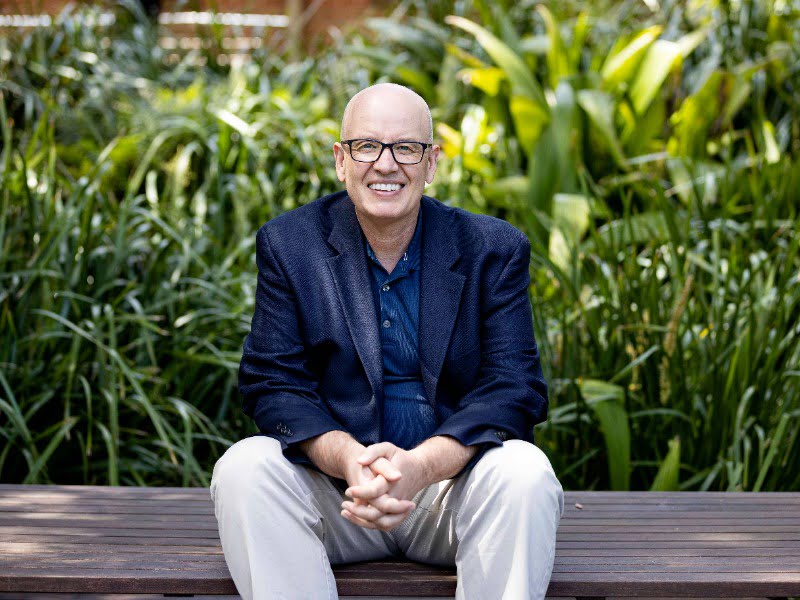An evolutionary biologist and virologist from the University of Sydney who played a critical role in the global scientific response to COVID-19, Professor Edward C Holmes, has been awarded the $250,000 Prime Minister’s Prize for Science.
And University of Sydney colleague Professor Anthony Weiss won the $250,000 Prime Minister’s Prize for Innovation for his work in accelerating and improving the repair of human tissue. The work led Professor Weiss to establish a science startup company to commercialise his research and inventions, which ultimately sold ten years later for $334 million.
The Prime Minister’s Prize for Science is one of the nation’s most prestigious awards for outstanding achievements in scientific research, research-based innovation, as well as excellence in STEM teaching.

Professor Holmes was the first person in the world to publicly share COVID-19 virus’ genome sequence, in early 2020. Sharing this data was critical in helping to shape the global response to the pandemic, and fast-tracked research efforts around the world.
It also enabled work on the design of a COVID-19 vaccine to begin within days, work that has ultimately saved countless lives. Professor Holmes continues to be at the forefront of research on the origins and evolution of COVID-19.
“Science has been at the forefront of our minds for the last 18 months, and Professor Holmes’ contribution to accelerating the development of the COVID-19 vaccine – doses of hope, as I call them – saved countless lives,” Prime Minister Scott Morrison said.
“For over 20 years, the Prizes have recognised remarkable Australians whose dedication to scientific research and innovation has led the way in shaping the future of our country, and Professor Holmes exemplified why we placed our trust in science to effectively respond to COVID-19,” he said.
Professor Anthony Weiss meanwhile, is considered the world’s leading authority on tropoelastin, the protein building-block that gives human tissue its elasticity.
For the past 20 years, he has pioneered global research into tropoelastin and elastic fibres, which are found in human tissues ranging from the skin to the lungs and arteries. These elastic fibres play a significant role in the repair of the human body.
When Professor Weiss began his research program in the 1990s, many believed that it was impossible for tropoelastin to become a successful medical biomaterial.
He proved them wrong by designing synthetic tropoelastin-based biomaterials, to accelerate and improve the repair of human tissue. In 2008, Professor Weiss founded Elastagen, and raised $35 million in venture capital and grant funding to complete clinical trials and scale-up production.
Minister for Science and Technology Melissa Price said research-based innovation leading to commercialisation demonstrated the value and importance of the work of Australian scientists.
“I would like to thank this year’s recipients for creating a more productive and more prosperous future for all of us through their research achievements, and for inspiring our next generation of scientists and innovators,” Minister Price said.
“Our Government is committed to ensuring we use science – and the incredible work of our scientists – to continue to improve the lives of all Australians.”
Additional prizes presented on the night were:
- The $50,000 Frank Fenner Prize for Life Scientist of the Year was presented to Professor Sherene Loi, Medical Oncologist and Head of the Translational Breast Cancer Laboratory at Peter MacCallum Cancer Centre, for her work to translate scientific findings into innovative treatments that can improve the survival of breast cancer patients in Australia and around the world.
- The $50,000 Malcolm McIntosh Prize for Physical Scientist of the Year was presented to world-leading astronomer and engineer, Dr Keith Bannister, whose work using CSIRO’s Australian Square Kilometre Array Pathfinder (ASKAP) radio telescope to solve the mystery of Fast Radio Burst radio waves is now helping solve several of the big astronomical mysteries of our generation.
- The $50,000 Prize for New Innovators was presented to Associate Professor Michael Bowen, co-founder and Chief Scientific Officer for Kinoxis Therapeutics and from the University of Sydney’s Brain and Mind Centre, for his work to drive scientific discoveries relating to serious brain disorders (such as opioid use disorder) that lack effective treatments.
- The $50,000 Prime Minister’s Prize for Excellence in Science Teaching in Secondary Schools was presented to Mr Scott Graham, Head of Agriculture at Barker College (NSW), for changing the way agricultural science is taught by developing unique programs to engage students and emphasise the positive difference agriculture makes to society.
- The $50,000 Prime Minister’s Prize for Excellence in Science Teaching in Primary Schools was presented to Mrs Megan Hayes, STEM specialist and primary teacher at Mudgeeraba Creek State School (QLD), for her outstanding work in championing the importance of STEM education in her local school community, and at a national level.
Do you know more? Contact James Riley via Email.

